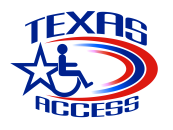Today, all customer journeys begin with questions. Questions about their needs, their goals, and their challenges. Any respectable digital agency would be positioned well to answer the questions of its prospective clients.
One question that clients may fail to ask is who is responsible for making their websites accessible. A digital agency could look bad if it fails to answer this question. Apart from the practice of web accessibility being the morally right thing to do, a serious consequence of an inaccessible site is that a website owner could receive a demand letter.
Are you a web agency? Claim this limited-time offer! 🏆
What is web accessibility?
For those who may not know, web accessibility is the state of having digital assets made accessible to people with disabilities. When digital assets are made accessible, not only do disabled people gain access to information, but abled people as well can enjoy the benefits of an accessible site – responsive and contextually accurate content.

The Importance Of The ADA
In the United States, there are an estimated 313 million active Internet users. With so many people spending time on the internet, it’s easy to deduce where businesses would focus their marketing efforts. It’s no surprise why the Americans with Disabilities Act (ADA) has now been interpreted to include the Internet as a place of public accommodation.
ADA was passed into law in 1990, to prevent discrimination against people with disabilities. In response to this law, businesses, schools, government buildings, and other facilities were required to make accommodations to ensure equal access.
Among the outcomes of this act were stipulations such as closed captioning being made available on public service announcements and making alterations to buildings to eliminate architectural barriers that would keep someone from being able to get inside.
Despite this, individuals with disabilities frequently encounter barriers that restrict their access to online resources. Internet usage is typically complicated for people with disabilities such as blindness, deafness, or limitations of mobility.
Fortunately, the Web Content Accessibility Guidelines have been introduced to help website designers ensure that these needs are addressed, linking the ADA with the internet.
Why Should Digital Agencies Lead Accessibility Efforts?
The importance of providing websites that can be accessed by people with various disabilities is often overlooked when it comes to digital agencies. This creates serious problems for the companies they serve in terms of complaints, lawsuits, and loss of profits.
Websites created by digital agencies should not only be functional but also accessible. They should provide content in various formats so that everyone gets an equal opportunity to use them.
With an increasing population, digital agencies have to keep up with the demand for website content and design. The best way to do so is by making sure that websites are accessible and easy to use by everyone across different devices and web browsing software.
Ensuring clients’ websites meet WCAG requirements will indeed require more effort. However, this is well worth the investment.
ADA compliance ensures that individuals with disabilities have equal access. This will reduce litigation and increase revenue for clients.
Once all these pieces fall into place, digital agencies will be able to establish themselves as proactive, innovative leaders – something that will pay off for years to come.
How Can Digital Agencies Help Their Clients Achieve Accessibility?
Agencies can either integrate accessibility into their development process from scratch manually or rely on automated accessibility solutions to remediate their clients’ sites.
Automated web accessibility solutions replace the manual process of making a website compliant with accessibility laws. All you need to do is add a single line of JavaScript to your website and the software will scan it, making it compliant within a few days.
It’s incredible how far an automated tool can take you! Furthermore, these tools analyze the functionality of every element on a website and adjust the user interface components and keyboard navigation.
They are also capable of monitoring websites around the clock to ensure that accessibility is upheld over time.
Given the expectations of your clients when it comes to this fairly new website risk factor, having an automated web accessibility solution in your pocket could be highly beneficial to digital agencies.
Now is the time to become compliant. Gain more insight from this Forbes article.
Final Thoughts
People with disabilities are often overlooked in society. They are treated as a “special case” when it comes to their education, healthcare, transportation, and employment. With the World Wide Web being the most popular tool for people to communicate and express themselves, people with disabilities are often excluded by not having access to web content.
Yet without accessibility, these people will be left behind. We need to ensure that everyone can enjoy using the internet regardless of their disability.
Developing an accessible website is the ultimate professional courtesy that digital agencies can ever provide for clients.








So what are the upsides of employing expert SEO